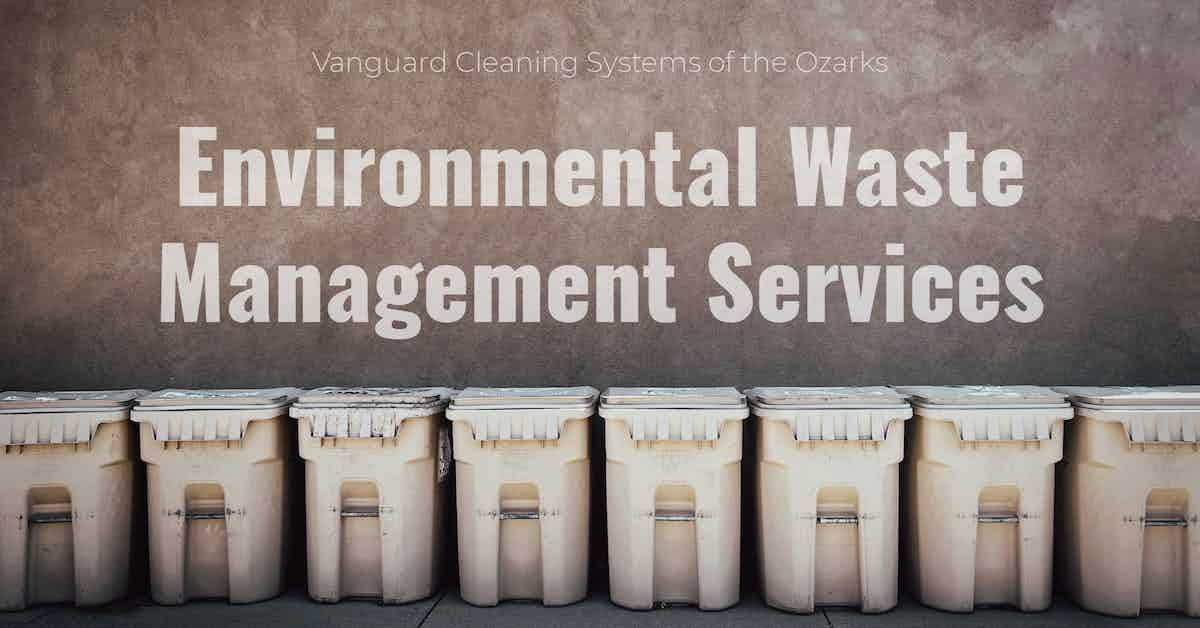High-outcome facility waste management services are critical for ongoing corporate financial success, ESG scoring, complying with public sentiment, adhering to government regulations, achieving carbon neutrality, and fighting climate change.

Waste Management Matters
Waste creation, diversion, and management directly impact carbon footprints at an organizational level and are considered a key metric in the ESG self-reported scoring system.
Properly managing your organization's solid and liquid waste creation and disposal has several benefits, including:
- Compliance with health, safety, and environmental regulations.
- Cost reduction, specifically from fines, remediation expenses, and corporate risk.
- A more robust public image.
- Reduced management overhead.
- Increased profits.
- Improved resource management efficiency.
- The potential for developing additional revenue streams through waste diversion.
- Improvements to the workforce and public health, and;
- Minimizing environmental damage.
Business Waste Management Protocol
Waste management protocols should start with a general assessment of your organization's:
- Requirements.
- Goals.
- Current waste management strategies and costs.
- Risk.
- Waste streams, and;
- Available resources.
This information will equip your organization with the tools to develop:
- Yearly waste reduction targets.
- A clear understanding of how your organization's waste management budget is currently allocated.
- Methods for diverting waste through repurpose, reuse, and recycling programs, and;
- Better protections for secure or protected data, such as HIPAA-covered patient information.
Workforce engagement is crucial to the success of sustainable waste management initiatives.
Current data shows that employee adoption of new waste management protocols can be increased by:
- Involving everyone in the organization to participate and provide input, especially goal setting, early on and at every stage going forward.
- Communicating updates, achievements, notable contributions, and other pertinent information through emails, newsletters, signage, corporate social streams, and training.
- Hosting events, such as waste-free lunches or office recycling parties, and;
- Incentivizing participation through friendly competitions and reward systems.
Finally, ongoing and annual reporting will provide decision-makers with the data needed to adjust waste management targets, methods, tools, and partners and ensure maximum investment return.
References & Resources
Takeaway
Corporate waste management and recycling programs have been shown to positively impact the environment.
According to the U.S. Environmental Protection Agency (EPA);
In 2018, the recycling, composting, combustion with energy recovery and landfilling of MSW saved over 193 million metric tons of carbon dioxide equivalent (MMTCO2E).
This is comparable to the emissions that could be reduced from taking almost 42 million cars off the road in a year.
Paper and paperboard recycling, at about 46 million tons, resulted in the largest portion of the total MSW reduction over 155 MMTCO2E in 2018.
This reduction is equivalent to removing over 33 million cars from the road for one year.
National Overview: Facts and Figures on Materials, Wastes and Recycling
Partnering with an experienced vendor with published sustainability commitments can help reduce the cost and friction commonly associated with onboarding new waste management plans.
To that end, Vanguard Cleaning Systems of the Ozarks has aligned itself with the following organizations--each dedicated to a safer, healthier, more sustainable future:
Need more capability and commitment to sustainability from your vendor partners? --Let’s talk.
In Oklahoma, dial 918-960-4450
In Arkansas, dial 479-717-2410
In Missouri, dial 417-812-9777

